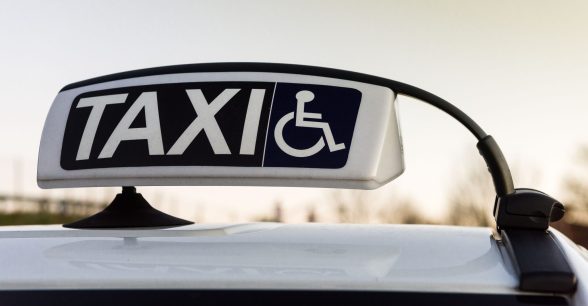Disability is More Than Just Inspiration or Trauma. When Will Media Cover it Authentically?
When I first started getting approached to write about disability in the media, I was beyond excited. After blogging for years in my little bubble, it felt like I was finally breaking into a space where I could make some real progress. However, it quickly became abundantly clear that most of the work I was receiving fell into one of two categories: inspiration porn and traumatic events. People only came knocking when I had trauma to sell that would shock or surprise people but make no lasting impact, or when I had a story or experience to share that would warm the hearts of non-disabled people. When it came down to the hard-hitting issues affecting disabled people, mainstream media just didn’t want to know.
One contributing factor to this issue is that disabled people make up 20% of the population worldwide but there are so few openly disabled journalists. Even finding statistics on the prevalence of disabled journalists proves difficult. We are missing from newsrooms and our lack of visibility means that harmful attitudes towards disability continue unchecked in reporting. And trauma and inspiration sells, so that’s what is churned out. There simply aren’t yet enough disabled journalists in mainstream media to substantially rewrite the narrative.
The trauma narrative focuses on stories such as dramatic life changing events. You’ll often see stories in the media that focus on the ‘tragic story’ of disability. Stories like these are often over-dramatised and whenever I have shared my story in the media I have been asked leading questions designed to up the shock factor. As someone who has spent years working on my internalised ableism, I’m in a pretty empowered place with my disability now, but that doesn’t sell papers. The media wants to hear that I hate being disabled, that my life is sad and something to be pitied, when in fact, I see my disability as a positive part of my life.
The general public want to hear about shocking injuries and about how brave disabled people are for facing these challenges. Importantly, people want to hear about us overcoming these challenges, rather than reports on the barriers disabled people face that society puts in our way.
The other side to disability in the media is inspiration porn. Events like the Paralympics bring out this side of journalism in a truly horrendous way, but inspiration porn is everywhere. Whether it’s the high school student asking a disabled person to prom, met with comments of “aren’t they incredible?,” or videos of wheelchair users walking down the aisle at their wedding, this content is everywhere. Disabled people’s everyday lives are turned into inspiration porn by the public. We cannot simply exist; we must be inspiring and brave.Ultimately, both kinds of stories are designed to incite pity and do nothing to move forward the disability rights movement; instead it stalls our progress. The stories of the barriers we face and the ableism we experience get lost beneath inspiring stories of us “overcoming” our disabilities. When this becomes the only story we tell, it pigeonholes disabled people in our everyday lives.
The media we consume on a daily basis has a monumental impact on our opinions and attitudes. So often when I complain about representation of disabled people in the media I’m told, “it’s only a film” or “it’s only one person’s opinion,” but these are the ways that people form their values and morals. As human beings it is our nature to be influenced by other people’s thoughts and feelings, and this becomes dangerous when the representation of disabled people across the media is so one dimensional.
Disabled people are multifaceted individuals with a multitude of identities. We work, we socialise, we succeed, and we fail. But rarely does our diversity and individualism get reported on in the way it should. We are seen either as Paralympians or as fakers, there is often no in-between.
As a disabled freelance writer and journalist, I want nothing more than to be able to change the narrative from the inside out, but the barriers that exist in getting hired and finding a seat at the table are stalling this. In recent years spaces like Rooted in Rights and the new UK-based publication The Unwritten give disabled people like me the much-needed space to have conversations that other publications reject. They let me be heard.
But it’s about time that the mainstream media opened up their spaces to let disabled people be heard in the authentic way we deserve. Let us take control of the narrative. Trauma and inspiration porn sells because society is used to the shock factor tactics that many outlets still use, but we can choose to do better. We can change these attitudes if we’re given the space to do so.
About Rooted In Rights
Rooted in Rights exists to amplify the perspectives of the disability community. Blog posts and storyteller videos that we publish and content we re-share on social media do not necessarily reflect the opinions or values of Rooted in Rights nor indicate an endorsement of a program or service by Rooted in Rights. We respect and aim to reflect the diversity of opinions and experiences of the disability community. Rooted in Rights seeks to highlight discussions, not direct them. Learn more about Rooted In Rights



